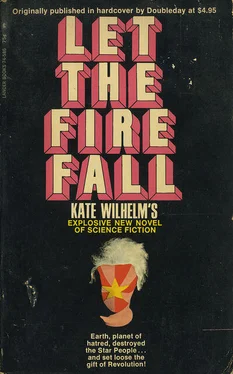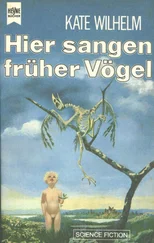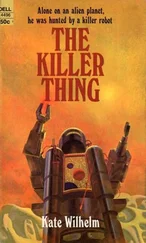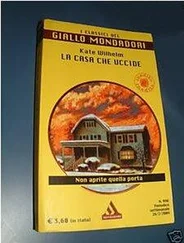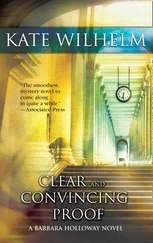Merton shivered. He didn’t want to think about that possibility.
About this time Merton and Dee Dee had a brief violent argument. She found him pacing furiously in her room late one night. She stopped at the door for a moment, then swept past him toward her office. Merton caught her arm and swung her around.
“Where’ve you been?”
“What’s that to you? If you don’t mind, I have work to do.”
“You’ve been with him! The kid! Haven’t you?”
Dee Dee pulled free and stepped back from him. “You pulling the old squatter’s rights routine on me, for chrissakes! Get lost, Merton. Beat it, will you. What if I was?”
“He’s dangerous, Dee Dee. Keep away from him.”
“Dangerous! A kid, for chrissakes! What’s the matter with you? Jealous of a kid? Scared of him is more like it, isn’t it? You’re scared to death of him. You and Obie and Billy. Jesus, you men are all scared right down to your balls over this one kid.” Mockingly she started to pass him again, laughing, “Afraid it’s different, better with an alien, Merton darling?”
“Bitch!” Merton slapped her, and when she tried to hit back he caught her arm and forced it behind her back, twisting her wrist. She moaned. “What have you told him? What’ve you been up to?”
“Nothing,” she gasped. He jerked her hand and she screamed. “I wanted to lay him… he wouldn’t. That’s all. Stop! St—” Merton let go and she fell to the floor.
He sat down hard on a lounge. After a minute or two he asked, “Are you okay?”
Dee Dee had stopped gasping. She pulled herself up without looking at him.
“Did he try to get anything out of you?” Merton asked, almost pleading now.
“I told you,” she said dully. “I told you. Now get out of here and leave me alone.”
“You were gone over an hour,” Merton said. “What were you doing all that time, talking over old times?”
“Yeah,” she said tiredly. “Talking over old times.” She didn’t look at him. She was afraid that he would twist her arm again, and she knew that she still wouldn’t be able to tell him anything more than she had. She didn’t know what they had talked about for more than an hour; she hadn’t known she’d been with him that long.
The next day Merton was surprised when she didn’t seem angry with him. She acted, in fact, as if she had forgotten the whole thing.
A few days later Blake demonstrated to Merton his first miracle for Obie. He produced a clear plastic liner compound that, mixed with water, formed wine, or near enough to fool anyone but a connoisseur. He played with it for a few days, laughed when Merton, who hung about him like a loyal dog, inquired about it and tossed the thing to the detective. A toy, he said. A parlor trick.
He showed Merton how he could fit it into a container, glass, paper cup, plastic glass, anything, add water from the tap, wait a. second or two, and have ruby wine. Merton looked at it suspiciously. Blake laughed again and took it and drank it.
“You have any more of those things?”
“Sure. Over there.” Blake waved toward his desk and paid no more attention when Merton picked up a handful of the plastic disks and left with them. The chemists analyzed the substance and came up with a formula that did produce winelike liquid when mixed with water. It was harmless, although in quantities it could be intoxicating. Obie had his miracle.
Blake had a reprieve from some of the suspicion that had attached to him.
Four nights later he led an escape from the mountain citadel.
It was raining, a cold merciless rain that was steady for hour after hour. Blake went first to Obie’s office, where he ran his hands over the door, finding and disconnecting the alarm before he entered. Blake knew where the safe was, an old-fashioned one that used a combination of voice tones and finger pressure. He said, in Obie’s voice, “Three, ninety-four, eleven, and open now.” The door swung open soundlessly. He picked up his disk, the stone with the rose fire, and his coins. He touched nothing else.
The unrelenting rain was a black curtain through which he moved, heading back toward the hospital area, three miles away. Behind the main building was a cluster of small houses, one of which was Winifred’s. He opened the door and whispered her name. Winifred gasped just once, asked no questions, threw a mackintosh around her shoulders, and left with him.
“Lorna’s room,” he said and led the way. Lorna was more reluctant, but she too remained silent and followed. Blake led them past the guards who were huddled inside a building at the edge of the forest. He motioned for them to bend low now and again, and Winifred assumed that there were electronic devices of various sorts spotted throughout the property. When they were deep in the woods they had to hold hands; it was too dark to see each other. Blake let them stop to rest three times between midnight and dawn, but stopping was more miserable than continuing. The cold was penetrating when the motion ceased. Walking, slipping, sliding over the rough mountainside kept them warm.
When the sky paled, Blake stopped them again, this time in the shelter of a low spreading pine tree where the ground was relatively dry, and no rain beat down.
Lorna sank to the ground and her head on her arms folded across her knees. Winifred leaned back against the tree too tired to move or to speak even. Blake vanished and was gone for half an hour, then was back, with a rabbit and a small bag of nuts. He built a tiny fire in the shelter of the tree and roasted the rabbit and they ate it, and the nuts. Nothing had ever tasted so good before to Winifred.
“We won’t make it, Blake, but bless you for trying. I thought… I didn’t know what to think when you acted so compliant.”
He grinned at her. “I had to find out who was there, where we were, where Lorna was, all that.”
Lorna hadn’t said anything at all yet, but now she lifted her head and stared at him. “Why did you bring me out with you?”
“A precaution,” Blake said. “You keep getting me in trouble, so I decided to put you where you’d be quiet for a while.”
She stiffened and turned away from him. She looked very unhappy.
They rested for three hours, then started to walk again. They were walking north. Blake didn’t intend to lead them out of the mountains at all, but stay in them until they were clear of Obie’s domain. Winifred shuddered at the thought. She didn’t think she would last that long, but she knew that if they did descend, they’d surely be found in the lowlands that were virtually owned by Obie.
The days and nights became dreamlike. They walked. Blake produced food, or sometimes didn’t produce food; they ate or fasted, drank cold clear water from streams, and walked some more. They slept under pine trees whose branches swept the ground. They walked some more. They talked when they stopped to rest. Lorna said very little. Winifred and Blake talked a good deal.
“There’s a particular mentality permeating the land now,” Blake said once to Winifred. “The people don’t consider the land as theirs any longer. They have crowded together along the coasts, and they line the rivers, and all in between is a wilderness, except for the great stretches of cultivated fields. And they are a wilderness of another sort. You can fly over them for hours and hours and see nothing but fields. The roads have been obliterated, the towns razed, the farms vanished completely. The tractors roll day and night, controlled from the underground headquarters where they are dots moving in well-ordered lines. We aren’t likely to see anyone at all in the woods. Most people don’t believe anyone could live in the woods for more than a couple of days. They think the game is all gone, the streams polluted. Many of them are, but high as we will be staying the water is good. The only meat most people have seen has been canned, and mixed with other things. If they have seen vegetables at all, it’s been in packages of so many ounces, not growing out under the sun.” He tossed a walnut and caught it. “I bet not one in twenty has ever seen a nut.”
Читать дальше
